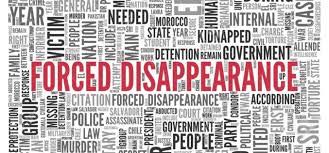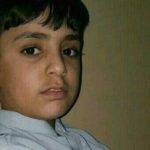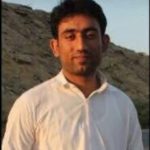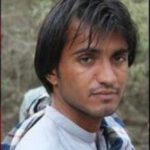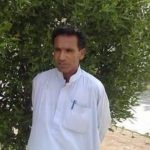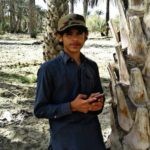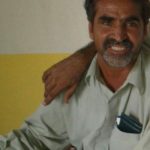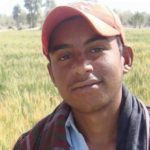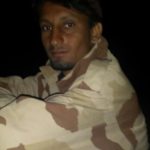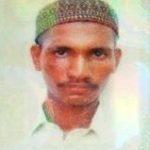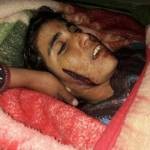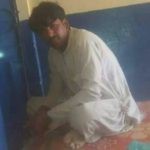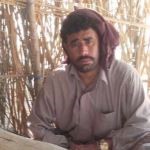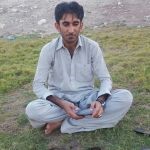Forward:
Pakistan is a signatory to many treaties and conventions that assign the state the responsibility of protecting the citizens of any illegal detention, torture, inhuman and degrading treatment.
To name a few most important, Pakistan has signed the Convention Against Torture and the International Covenant of Civil and Political Rights on 17 April 2008 and ratified them on 23rd June 2010; signed the International Covenant on Economic, Social and Cultural rights on 3rd November 2004 and ratified it on 17 April 2008; signed the Convention on the Rights of Child on 20 September 1990 and ratified it on 12 November 1990.
The government of Pakistan has formed a National Commission for Human Rights, claiming to independently investigate the cases and enforce the laws state has introduced in its legislation covering and protecting the articles of the above-mentioned conventions and covenants.
The cases of enforced disappearances of Baloch activists and their family members have multiplied in number in the recent months. The National Commission of Human Rights seems to have failed to make any difference. It has helped cover up the role of security agencies in the enforced disappearances in the name of national security.
Almost all the political activists in Balochistan, who had an opposite view of the government’s projects, have been abducted and forcibly disappeared and/or extra judicially killed by security forces.
Most of the cases went unnoticed, as the media and human rights organizations are not given access to Balochistan and most of the reporters in Balochistan are killed and/or abducted and forcibly disappeared.
Enforced Disappearances:
Baloch Human Rights Organization, a Balochistan based human rights group issued the initial details of 1,225 persons, forcibly disappeared from January to end of November 2017, while the group claims that 287 persons have been extra judicially killed by security forces in this period of time.
Our sources from Balochistan have confirmed the initial reports of 1,091 cases in which security forces victimized the civilians of enforced disappearance.
Some of the recent cases are:
- Nawaz Atta
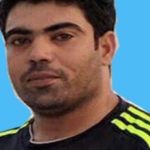 Born in 1995 in the small town of Gichk in district Panjgur of Balochistan, Nawaz Atta had long dreamt of becoming a poet and a fiction writer. Therefore, after completing his primary education from his home village, he moved to the metropolitan Karachi city to live up his dreams.
Born in 1995 in the small town of Gichk in district Panjgur of Balochistan, Nawaz Atta had long dreamt of becoming a poet and a fiction writer. Therefore, after completing his primary education from his home village, he moved to the metropolitan Karachi city to live up his dreams.
But he was more of a social worker by nature than a poet. He developed this strong urge to help bring his fellow villagers to Karachi for better education opportunities. He kept a list of education institutions and their upcoming admission schedules. He would text this list to any willing youngster from his village.
When someone becomes a victim of enforced disappearance in Balochistan, his/her relatives have little options to press personnel of security forces to release their loved ones. What they usually do is to sit outside the Karachi Press Club in protest so that the media people highlight their case. Nawaz took care of many such families. That is how he became the central information secretary of the Baloch Human Rights Organization.
He was abducted by paramilitary Rangers personnel in Karachi on 28th of October 2017. He is still missing along with eight other students from Balochistan, all abducted from Karachi.
9 years old Aftab does not remember his biological mother. He was 40 days old when she, Jamal Khatoon, died of Hepatitis B and C in 2007, the year Aftab was born.
He was then adopted by his father’s sister, Sabira Rahim. Aftab now calls her mother. Aftab attended Pak Islamic Public School in Khuzdar till grade three. At the end of 2015, the family shifted to Karachi to escape any possible fallout of the ongoing conflict between Baloch separatists and Pakistan’s military. They were living in the Gulshan-e-Hadid area of Karachi and Aftab was a student of grade 5 at the Rising Star School.
His mother, Sabira, a 35 years old schoolteacher, is the wife of Rahim Baloch, a known Baloch nationalist leader. He served as Chairman of the Baloch Students Organization and the founding Secretary General of the Baloch National Movement. This very fact made Aftab qualified enough to become another Baloch missing person.
The Sindh Rangers raided their house in Gulshan-e-Hadid at around 02:30 am on 28th of October 2017. They whisked away Aftab along with his two cousins: 24-year-old Rawat and 25-year-old Arif.
- Ulfat
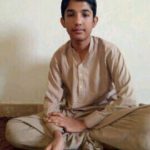
11 years old Ulfat Altaf is a resident of Awaran Balochistan and a student of grade five in school.
Many of his family members have been abducted by security forces and later killed. His mother, Zubaid
a thought to shift to Karachi for two purposes, safety and the education of her children.
They rented an apartment in Gulshan-e-Hadid colony phase 1, at Double road street Karachi.
The Sindh rangers and personnel of intelligence agencies of Pakistan raided their house on 28 October 2017 and took Mr. Ulfat along with three of his cousins, Abid, Sajjad and Farhad.
25 years old Sanaullah Mohammad Ismail, alias Ezzat Baloch is a student and Secretary General of Baloch Student Organization-Azad (BSO-Azad).
He is a native of Mashkay, Awaran Balochistan.
Like thousands of other Baloch students, he was also compelled to leave his studies and home and stay anonymous under a pseudonym, Ezzat Baloch, since the “Kill and Dump” policy of Pakistani security forces against Baloch activists was accelerated in 2009.
He was in Karachi and visiting his colleague, Naseer Ahmed, at Naseer Ahmed’s house near Rufi Mall in Mosmiat area of Karachi, along with Hassam and Rafeeq Baloch, two close friends and colleagues.
Sindh Rangers and personnel of intelligence agencies raided the house on 15 November 2017 at around 21:00 and abducted Sanaullah, Naseer, Hassam and Rafeeq Baloch. They are forcibly disappeared since then.
Hassam Baloch is a poet, born in 1995 in Mand, a town in Balochistan bordering Iran. He completed his basic education from his village, intermediate from Atta Shad degree college Turbat and then shifted to Karachi for higher education.
He used to write poems in Balochi as well as Urdu. Sometimes, he wrote prose, but his poetic writings have been more appreciated than the prose.
In Turbat and Karachi, he mostly wanted to live alone. With the books and pen only. He studies literature, art, philosophy and history. But he was possessed by literature too much.
He is a member of central committee of Baloch Students Organization-Azad.
Hassam Ghulam Mohammad was abducted along with Sanaullah, Naseer and Rafeeq Baloch on 15 November 2017, from a house in Karachi by Sindh Rangers and personnel of intelligence agencies.
25 years old Rafeeq Ahmed Rahim Bakhsh is a resident of kanari village of Mashkay district Awaran Balochistan. He was once wounded in indiscriminate shelling of military’s helicopters on his village during a military operation in 2010. He could not see properly, could not walk properly and needed constant medical assistance.
Mr. Rafeeq and his family had left their village and lived in Karachi.
Sindh Rangers and personnel of intelligence agencies raided their house on 15 November 2017 and abducted Rafeeq Ahmed, Sanaullah, Naseer and Hassam.
They were all forcibly disappeared after abduction. His wife and children recorded their testimony as eyewitness of the incident. The families started a sit-in protest camp in front of Karachi press club to raise their voice. Human rights groups, political parties condemned the incident and held many protests around the world for safe recovery of the abductees. But, the government of Pakistan did not reply to all the appeals and kept quiet.
Naseer Ahmed Swali is a 26 years old student and a resident of Lal bazar kohárhó village of Jahl Jhao, Awaran Balochistan.
They had migrated to Karachi due to constant military operations. His village in Jahl Jhao, Awaran Balochistan was forcefully evacuated by the forces and the villagers were left, without any help whatsoever, scattered across different parts of Balochistan and Sindh.
Naseer Ahmed was living a life of IDP, but he continued his studies.
On 15 November 2017, Sindh Rangers and personnel of intelligence agencies raided their house and abducted Naseer Ahmed along with Sanaullah, Hassam and Rafeeeq.
The families launched a campaign of protests, started a sit-in camp in front of Karachi press club to highlight the case.
Human rights organizations and political parties held protests in Karachi, Quetta and different cities of western countries. UN working group on enforced or involuntary disappearances sent communications to the government of Pakistan. But, the government has not replied to any appeals and did not produce him in any court of law.
Sagheer Ahmed Ghulam Qadir is 22 years old, student of Political Science in Karachi University and a resident of Tirtéj village Mashkay, district Awaran Balochistan.
He did his basic schooling in Tirtéj, Awaran and did his inter from Inter College Mashkay in 2015. He has left his home village, Tirtéj, Awaran and shifted to Karachi for his studies.
His exams were going on at the university. He was sitting at canteen with his friends after he finished his exam. 10/12 persons, dressed in plain clothes entered the Visual Studies canteen of Karachi University at around 5-6:00 PM and took Sagheer Ahmed with them after checking the Identity cards of all.
His sister, Hameeda joined the sit-in protest camp in front of Karachi press club, which was held by the family members of previously adducted and forcibly disappeared students of Balochistan from Karachi.
Many human rights groups, student organizations and political parties held protests in many cities around the world and requested Pakistan government to produce him in a court of law, if he is accused of any illegal activity, but he is still missing. Government of Pakistan did not reply to the communication of UN’s working group on enforced or involuntary disappearances on the communication regarding forcible disappearance of Sagheer Ahmed.
On September 8, 2017, Pakistani security forces abducted a teacher Hafeez Baloch from Government High School in Tirtéj district Awaran, Balochistan.
Security forces cordoned the area during the teaching (working) hours and raided on the school and abducted the only science teacher of the school.
The family members and students of Hafeez say, “He is a caring, devoted and honest teacher who always teaches in a productive way and encourage students towards the betterment of education”.
On 20 Oct 2017, two teenagers, Qadir Bakhsh Khair Muhammed and Shah Nawaz Jalal Khan, residents of Shólid, Dasht were abducted during a house to house search operation in Bilal Mosque area of district Gwadar.
See appendix 01 of pdf, for details of the victims of Enforced Disappearance in 2017.
Extra judicial killings:
There was hardly a week, where the security forces haven’t claimed to kill some ‘terrorist’ in Balochistan. However, the main targets remained the civilians, specially educated youth. It shows that the security forces were either not able to differentiate the civilians from armed persons, or did it with any other reason.
There were dozens of cases in which security forces killed the person who were in their custody, threw their dead bodies and claimed encounter.
Some are listed here, which our own sources have confirmed:
Master (The Schoolteacher) Baitullah, was a schoolteacher and resident of Dázen village of tehsil Tump, district Kech Balochistan. He was abducted by security forces from main bazar of Dázen, Tump in front of all the people, on 17 June 2015. An Urdu language newspaper quoted security forces saying in a statement that “In a combined operation of Frontier Corps and the Secret Agencies, a (militant) commander is arrested along with four persons”. The news further mentions that the name of the commander is Baitullah and ‘arms and literature was found from them”. It says, ‘Baitullah, the commander had a very important role in organizing terror attacks in the region.’”
On 27 April 2017, the local levies force received a phone call from the Frontier Corps, saying they (FC) has killed five terrorists in a battle and their dead bodies are lying in nearby streamside. The English languae newspaper, Dawn, published the news without any further investigation.
One of the alleged terrorists killed in this battle, was Baitulla, the schoolteacher. The other four dead bodies were of another four persons previously abducted and forcibly disappeared by security forces and unknown gunmen from Balochistan and Karachi city of Sindh.
Sabir Ghulam Hussain was abducted by Frontier Corps on 16 November 2016, from his house in Góbord village of Mand district Kech Balochistan. All of his family and the neighbors witnessed his abduction.
He was forcibly disappeared till 27 April 2017. He was one in five alleged terrorists along with Master Baitullah, FC claimed to kill in a battle.
Asif Anwar was a tailor master, a resident of district Kech Balochistan. He was whisked away by civil dressed, unknown gunmen from Karachi, Sindh on 1st of December 2016 and was forcibly disappeared.
The five persons, FC claimed to kill in an encounter during a battle on 27 April 2017 in Mand Balochistan, were including Asif Anwar Ali.
Jasim Raheem was a resident of tehsil Tump district Kech Balochistan. He was on his duty in a grocery shop when the personnel of Frontier Corps picked him up on 4 January 2017. They came in vehicles, uniformed and armed. More than a dozen persons of the village witnessed his abduction.
He remained disappeared till 27 April 2017. His dead body was found along with Baitullah and others, who FC claimed to kill in an encounter during a battle.
22 years old Majid son of Majeed resident of district Kech Balochistan was whisked away by unknown gunmen from Gulshan-e-Mazdur, Karachi Sindh on 2nd of February 2017.
No one claimed his arrest. He remained disappeared till his dead body was found dumped along with master Baitullah and others, who FC claimed to kill during a battle in Mand on 27 April 2017.
17 years old Miss Shams Khatoon, daughter of Yousuf, was busy with making food in the kitchen of her house in Kilkaor village of district Panjgur Balochistan, when the military helicopters started shelling on their house.
She was killed on the scene on 17 August 2017.
Habibullah a young footballer, resident of Ward no. 6 area of Pasni district Gwadar was abducted when his family and relatives were busy in preparations for his wedding. On 8 April 2014, Frontier Corps and Intelligence agencies raided his house and took him away.
He remained ‘missing’ for three years. Neither his family was informed about his whereabouts, nor was he produced in a court of law. Finally, on 30th of April 2017, his dead body was found, bearing torture marks.
Security forces claimed he was a militant who was killed during a gun battle between ‘terrorists’ and the security forces.
On 13 May 2017, Pakistani security forces opened fire and willfully killed Siraj Fazal in Ganda-Kour, Kólwá district Awaran, Balochistan.
Siraj Fazal, also known as Saud Baloch, was a nineteen years old student of 9th Grade and a resident of Mehshód, Bazdád district Awaran. He recently passed his exams of 8th Grade from Government Middle School Lad, Bazdád district Awaran. He was a Political activist and was rendering his services as a zonal organizer of Baloch Student Organization – Azad (BSO-A) Awaran Zone.
On 07 August 2017, Dead body of Ali Bakhsh Pir Mohammad, resident of Main Bazar, Hósháp district Kech, Balochistan was found dumped in Hósháp area of district Kech, Balochistan.
Ali Bakhsh was abducted by security forces from his house before three days.
On 01 August 2017, early in the morning, Pakistani security forces started a military operation in Nezarábád and Malekábád areas of Tump district Kech, Balochistan.
During the house-to-house search operation in Nezarábád, forces looted the valuables of the locals and beaten up the women and children. At the same time, forces also started indiscriminate firing on the villagers which resulted in the death of Sattar s/o Dr. Mohammad, a resident of Koddán, Dasht district Kech, Balochistan.
On 20 September, two persons of the same family, Abdullah Sher Muhammad aka Said and Amjid Gwahram were abducted by Frontier Corps during a raid on their house in Ródbon area of tehsil Tump, district Kech Balochistan.
They were found dead in a nearly riverside after a few hours.
Abdullah Sher Muhammad aka Said and Amjid Gwahram were abducted by Frontier Corps from their house in Ródbon area of tehsil Tump district Kech on 20 September 2017.
The whole family witnessed their abduction.
Their dead bodies were found dumped on a nearby riverside after a few hours of their abduction.
See appendix 02 in pdf, for the details of the persons extra judicially killed in year 2017 in Balochistan.
Burning the villages as collective punishment:
During the military operations in Balochistan, Frontier Corps would burn the houses and harvest of the villagers, reports say. We have investigated many cases of this kind, despite very little access to the villages and found that the security forces are forcefully evacuating the villages by burning the houses.
Here are some cases;
- Shólig Dasht, district Kech:
On 22 May 2017, Frontier Corps and other security forces started a military operation in Shólig village of Dasht district Kech, Balochistan. During the operation, residents of Shólig village were all assembled in one place and Tahir Allah Bakhsh was whisked away by the forces. Four houses were bulldozed and several Huts were set ablaze.
- Phollábád Tump district Kech:
On 13 June 2017, Pakistani security forces started a military operation in Phollábád area of Tump district Kech Balochistan. During the operation, security forces bulldozed Bilal Murad’s house and demolished Dr. Hameed’s house to the ground. Local villagers were assembled in one line and were subjected to torture. Several houses were burnt to ashes, many abducted and one was critically injured in indiscriminate firing of security forces.
- Lóp and Názok areas of Grésha, Nál, district Khuzdar:
On 06 June 2017 Pakistani Army, along with Intelligence Agency personnel, conducted a military operation in Lóp and Názok areas of Grésha, Nál, Balochistan and burned down many houses to ashes.
- Morád Ján bázár of Pirándar district Awaran:
On 23 March 2017, Pakistan military forcefully evacuated Morád Ján bázár of Pirándar district Awaran, Balochistan. Security forces ordered the local residents of Morád Ján bázár and Kocch villages of Awaran to immediately evacuate their houses. The locals resisted the forceful evacuation, but the forces threatened to abduct all the women and children, if their orders are refused. In order to save the women and children, the local residents of Morád Ján bázár and Kocch villages helplessly evacuated their houses.
- Málár, Macchi village in Mashkay district Awaran:
On 08 March 2017, Dozens of houses and live-stock of civilians were burned down during a military operation in Málár and Macchi villages of Mashkay district Awaran Balochistan.
Click here for the full report….
